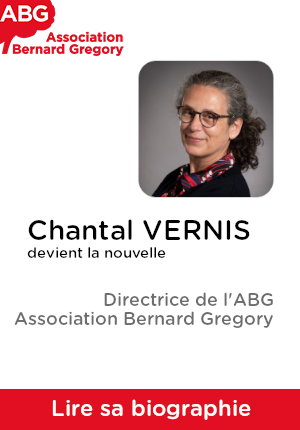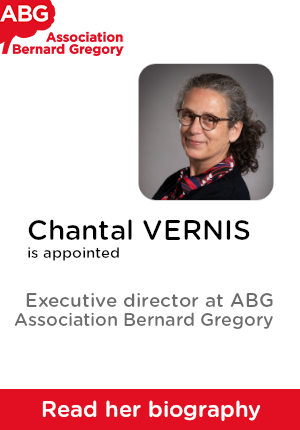Évolution génétique des populations humaines du bassin parisien de l'Âge du Fer à nos jours // Genetic evolution of human populations in the Paris Basin from the Iron Age to the present day
|
ABG-129692
ADUM-61305 |
Thesis topic | |
| 2025-03-19 | Public funding alone (i.e. government, region, European, international organization research grant) |
Muséum national d'Histoire naturelle
Paris - France
Évolution génétique des populations humaines du bassin parisien de l'Âge du Fer à nos jours // Genetic evolution of human populations in the Paris Basin from the Iron Age to the present day
- Psychology, neurosciences
ADN ancien, archéologie, protohistoire, diversité génétique
ancient DNA, archeology, protohistory, genetic diversity
ancient DNA, archeology, protohistory, genetic diversity
Topic description
Le développement récent de la paléogénétique a significativement contribué à une meilleure compréhension des origines et de l'histoire évolutive des populations humaines modernes, en particulier en Eurasie. Dans cette perspective, le territoire actuel de la France, notamment le Bassin parisien, présente un intérêt spécifique en tant que carrefour entre l'Europe Centrale et les régions atlantique et méditerranéenne. De plus, le Bassin parisien constitue une entité géographique cohérente, densément peuplée depuis des millénaires, qui a fait l'objet de recherches intensives et qui est devenue un centre politique important depuis deux mille ans. Mettant à profit le caractère interdisciplinaire de notre unité Éco-anthropologie (UMR 7206, Musée de l'Homme, Paris), ce projet a pour objectif de caractériser en détail l'histoire démographique humaine de ce territoire-clé durant ces deux derniers millénaires, de l'Âge du Fer à l'époque moderne, à travers un échantillonnage de cinq périodes archéologiques : l'Âge du Fer (800 AEC jusqu'au 1er siècle AEC), la période gallo-romaine (1er siècle AEC-5e siècle EC), la période mérovingienne (5e-8e siècles EC), la période carolingienne (8e-11e siècles EC) et le 17e siècle EC. Une comparaison avec des données d'ADN contemporaines est également envisagée en collaboration avec le projet POPGEN (Diversité Génomique de la population française, Université de Brest). Deux dimensions seront étudiées à travers l'analyse des données génomiques : d'une part l'histoire évolutive des populations qui se sont succédé dans le bassin parisien depuis l'Âge du Fer, et d'autre part les traits sociaux (marques de hiérarchie, importance des relations de parenté génétiques, traitements distinctifs des femmes et des hommes) qui peuvent être mis en évidence en intégrant les données génétiques et archéologiques des sites.
------------------------------------------------------------------------------------------------------------------------------------------------------------------------
------------------------------------------------------------------------------------------------------------------------------------------------------------------------
Recent developments in paleogenetics have contributed significantly to a better understanding of the origins and evolutionary history of modern human populations, particularly in Eurasia. From this perspective, France's present-day territory, notably the Paris Basin, is of particular interest as a crossroads between Central Europe and the Atlantic and Mediterranean regions. Moreover, the Paris Basin constitutes a coherent geographical entity, densely populated for millennia, which has been the subject of intensive research and has become an important political center over the past two thousand years. Taking advantage of the interdisciplinary nature of our Eco-anthropology unit (UMR 7206, Musée de l'Homme, Paris), this project aims to characterize in detail the human demographic history of this key territory over a period of two millennia, from the Iron Age to modern times, through a sampling of five archaeological periods: the Iron Age (800 BCE to 1st century BCE), the Gallo-Roman period (1st century BCE-5th century CE), the Merovingian period (5th-8th centuries CE), the Carolingian period (8th-11th centuries CE) and the 17th century CE. A comparison with contemporary DNA data is also envisaged in collaboration with the POPGEN project (Genomic diversity of the French population, Université de Brest). Two dimensions will be studied through the analysis of genomic data: on the one hand, the evolutionary history of successive populations in the Paris basin from the Iron Age to the present day, and on the other, the social traits (marks of hierarchy, importance of genetic kinship relationships, distinctive treatment of women and men) that can be inferred by integrating genetic and archaeological data.
------------------------------------------------------------------------------------------------------------------------------------------------------------------------
------------------------------------------------------------------------------------------------------------------------------------------------------------------------
Début de la thèse : 01/10/2025
------------------------------------------------------------------------------------------------------------------------------------------------------------------------
------------------------------------------------------------------------------------------------------------------------------------------------------------------------
Recent developments in paleogenetics have contributed significantly to a better understanding of the origins and evolutionary history of modern human populations, particularly in Eurasia. From this perspective, France's present-day territory, notably the Paris Basin, is of particular interest as a crossroads between Central Europe and the Atlantic and Mediterranean regions. Moreover, the Paris Basin constitutes a coherent geographical entity, densely populated for millennia, which has been the subject of intensive research and has become an important political center over the past two thousand years. Taking advantage of the interdisciplinary nature of our Eco-anthropology unit (UMR 7206, Musée de l'Homme, Paris), this project aims to characterize in detail the human demographic history of this key territory over a period of two millennia, from the Iron Age to modern times, through a sampling of five archaeological periods: the Iron Age (800 BCE to 1st century BCE), the Gallo-Roman period (1st century BCE-5th century CE), the Merovingian period (5th-8th centuries CE), the Carolingian period (8th-11th centuries CE) and the 17th century CE. A comparison with contemporary DNA data is also envisaged in collaboration with the POPGEN project (Genomic diversity of the French population, Université de Brest). Two dimensions will be studied through the analysis of genomic data: on the one hand, the evolutionary history of successive populations in the Paris basin from the Iron Age to the present day, and on the other, the social traits (marks of hierarchy, importance of genetic kinship relationships, distinctive treatment of women and men) that can be inferred by integrating genetic and archaeological data.
------------------------------------------------------------------------------------------------------------------------------------------------------------------------
------------------------------------------------------------------------------------------------------------------------------------------------------------------------
Début de la thèse : 01/10/2025
Funding category
Public funding alone (i.e. government, region, European, international organization research grant)
Funding further details
Concours pour un contrat doctoral
Presentation of host institution and host laboratory
Muséum national d'Histoire naturelle
Institution awarding doctoral degree
Muséum national d'Histoire naturelle
Graduate school
227 Sciences de la nature et de l'Homme : évolution et écologie
Candidate's profile
Nous proposons une thèse en génétique des populations humaines, appliquée à des échantillons anciens. La ou le doctorant.e devra donc démontrer une formation en génomique évolutive, génétique des populations, voire génétique humaine. Un intérêt pour la paléogénétique, l'anthropologie et l'archéologie est évidemment un avantage.
Une expérience pratique en laboratoire de manipulation de jeux de données génomiques est nécessaire (stage de M1 et/ou de M2). La connaissance du langage informatique bash, ainsi que d'au moins un autre langage informatique (Python, R…) est également requise.
Le vivier pour de tel.les étudiant.es se trouve dans de nombreux masters de génétique et génomique. Des profils d'étudiant.es provenant de masters d'anthropologie biologique qui incluent une part de formation en génétique pourront également être considérés.
We are offering a PhD in human population genetics, applied to ancient samples. The PhD candidate will therefore need to demonstrate a background in evolutionary genomics, population genetics or human genetics. An interest in paleogenetics, anthropology and archaeology is an obvious advantage. Practical laboratory experience in handling genomic datasets is required (M1 and/or M2 internship). Knowledge of bash and at least one other computer language (Python, R...) is also required. The breeding ground for such students can be found in many genetics and genomics masters programs. Profiles of students from biological anthropology masters programs that include some training in genetics may also be considered.
We are offering a PhD in human population genetics, applied to ancient samples. The PhD candidate will therefore need to demonstrate a background in evolutionary genomics, population genetics or human genetics. An interest in paleogenetics, anthropology and archaeology is an obvious advantage. Practical laboratory experience in handling genomic datasets is required (M1 and/or M2 internship). Knowledge of bash and at least one other computer language (Python, R...) is also required. The breeding ground for such students can be found in many genetics and genomics masters programs. Profiles of students from biological anthropology masters programs that include some training in genetics may also be considered.
2025-05-12
Apply
Close
Vous avez déjà un compte ?
Nouvel utilisateur ?
More information about ABG?
Get ABG’s monthly newsletters including news, job offers, grants & fellowships and a selection of relevant events…
Discover our members
 ADEME
ADEME  Laboratoire National de Métrologie et d'Essais - LNE
Laboratoire National de Métrologie et d'Essais - LNE  MabDesign
MabDesign  Institut Sup'biotech de Paris
Institut Sup'biotech de Paris  ASNR - Autorité de sûreté nucléaire et de radioprotection - Siège
ASNR - Autorité de sûreté nucléaire et de radioprotection - Siège  CESI
CESI  TotalEnergies
TotalEnergies  SUEZ
SUEZ  Groupe AFNOR - Association française de normalisation
Groupe AFNOR - Association française de normalisation  Généthon
Généthon  Ifremer
Ifremer  ONERA - The French Aerospace Lab
ONERA - The French Aerospace Lab  CASDEN
CASDEN  ANRT
ANRT  PhDOOC
PhDOOC  Aérocentre, Pôle d'excellence régional
Aérocentre, Pôle d'excellence régional  MabDesign
MabDesign  Nokia Bell Labs France
Nokia Bell Labs France  Tecknowmetrix
Tecknowmetrix
-
Thesis topicRef. 130176, Grand Est , FranceInstitut Thématique Interdisciplinaire IRMIA++
Schrödinger type asymptotic model for wave propagation
Scientific expertises :Mathematics - Mathematics
-
JobRef. 130080, Ile-de-France , FranceAgence Nationale de la Recherche
Chargé ou chargée de projets scientifiques bioéconomie H/F
Scientific expertises :Biochemistry
Experience level :Confirmed







